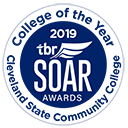Postsecondary Teachers
Education Teachers, Postsecondary
25-1081.00
Median wages
$54,740
Teach courses pertaining to education, such as counseling, curriculum, guidance, instruction, teacher education, and teaching English as a second language. Includes both teachers primarily engaged in teaching and those who do a combination of teaching and research.
- Initiate, facilitate, and moderate classroom discussions.

- Supervise students' fieldwork, internship, and research work.

- Keep abreast of developments in the field by reading current literature, talking with colleagues, and participating in professional conferences.

- Prepare and deliver lectures to undergraduate or graduate students on topics such as children's literature, learning and development, and reading instruction.

- Evaluate and grade students' class work, assignments, and papers.

- Prepare course materials, such as syllabi, homework assignments, and handouts.

- Conduct research in a particular field of knowledge and publish findings in professional journals, books, or electronic media.

- Collaborate with colleagues to address teaching and research issues.

- Advise students on academic and vocational curricula and on career issues.

- Plan, evaluate, and revise curricula, course content, course materials, and methods of instruction.

- Maintain student attendance records, grades, and other required records.

- Compile, administer, and grade examinations, or assign this work to others.

- Maintain regularly scheduled office hours to advise and assist students.

- Select and obtain materials and supplies, such as textbooks.

- Write grant proposals to procure external research funding.

- Participate in student recruitment, registration, and placement activities.

- Serve on academic or administrative committees that deal with institutional policies, departmental matters, and academic issues.

- Advise and instruct teachers employed in school systems by providing activities, such as in-service seminars.

- Compile bibliographies of specialized materials for outside reading assignments.

- Perform administrative duties, such as serving as department head.

- Serve as a liaison between the university and other governmental and educational agencies.

- Provide professional consulting services to government or industry.
- Analytical or scientific software — SAS


- Calendar and scheduling software

- Computer based training software — Blackboard Learn; Learning management system LMS; Padlet; VoiceThread (see all 7 examples)

- Data base user interface and query software — Blackboard
 ; Data entry software
; Data entry software 

- Electronic mail software — Email software; Microsoft Outlook


- Information retrieval or search software — DOC Cop; iParadigms Turnitin

- Internet browser software — Web browser software

- Office suite software — Microsoft Office

- Optical character reader OCR or scanning software — Image scanning software

- Presentation software — Microsoft PowerPoint


- Spreadsheet software — Microsoft Excel


- Word processing software — Collaborative editing software; Editing software; Google Docs; Microsoft Word
- Speaking — Talking to others to convey information effectively.

- Reading Comprehension — Understanding written sentences and paragraphs in work related documents.

- Writing — Communicating effectively in writing as appropriate for the needs of the audience.

- Active Learning — Understanding the implications of new information for both current and future problem-solving and decision-making.

- Active Listening — Giving full attention to what other people are saying, taking time to understand the points being made, asking questions as appropriate, and not interrupting at inappropriate times.

- Instructing — Teaching others how to do something.

- Learning Strategies — Selecting and using training/instructional methods and procedures appropriate for the situation when learning or teaching new things.

- Critical Thinking — Using logic and reasoning to identify the strengths and weaknesses of alternative solutions, conclusions or approaches to problems.

- Complex Problem Solving — Identifying complex problems and reviewing related information to develop and evaluate options and implement solutions.

- Monitoring — Monitoring/Assessing performance of yourself, other individuals, or organizations to make improvements or take corrective action.

- Time Management — Managing one's own time and the time of others.

- Coordination — Adjusting actions in relation to others' actions.

- Judgment and Decision Making — Considering the relative costs and benefits of potential actions to choose the most appropriate one.

- Social Perceptiveness — Being aware of others' reactions and understanding why they react as they do.

- Systems Analysis — Determining how a system should work and how changes in conditions, operations, and the environment will affect outcomes.

- Management of Personnel Resources — Motivating, developing, and directing people as they work, identifying the best people for the job.

- Service Orientation — Actively looking for ways to help people.

- Systems Evaluation — Identifying measures or indicators of system performance and the actions needed to improve or correct performance, relative to the goals of the system.










